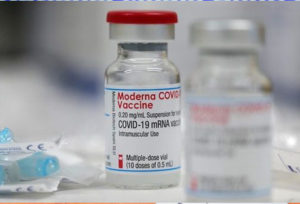
The German Standing Committee on Vaccination (STIKO) has reportedly recommended that people who receive AstraZeneca vaccine, known as Covishield in India, as their first jab, should get either Pfizer or Moderna for their booster vaccination as the mixing of two different vaccines will augment immune responses against the virus.
The committee further suggested that the second dose of the Covid-19 vaccine be administered four weeks or more after the first AstraZeneca jab, which is shorter than the nine or more weeks that the committee advises between two AstraZeneca vaccine shots, news agency ANI reported.
This announcement made Germany one of the first countries to recommend mixing doses, even as a recent study by the University of Oxford revealed that alternating doses of AstraZeneca vaccine and Pfizer-BioNTech generate more ‘robust immune responses’ against coronavirus.
In June, German Chancellor Angela Merkel took Moderna as her second jab after getting inoculated with the AstraZeneca shot as her first, CNN reported.
Recently, Canada’s National Advisory Committee on Immunisation (NACI) stated that an mRNA vaccine is now preferred as the second Covid-19 shot for those people who were administered the AstraZeneca or Covishield vaccine dose the first time, the CNN report added.
On Friday morning, Canadian Prime Minister Justin Trudeau also received Moderna as his second Covid-19 dose after getting AstraZeneca jab for the first.
Discussions on the efficacy of mixing two Covid-19 vaccines comes amid the World Health Organisation (WHO) informing on Thursday that the number of coronavirus cases in Europe shot up by 10 per cent last week. In a statement, Dr Hans Henri P. Kluge, WHO regional director for Europe said that ‘increased mixing, travel, gathering and easing of social restrictions’ contributed to the rise in cases.
He added that the upward trend of cases – which occurred after a 10-week decline in 53 member states of the WHO European region – is happening at a time when infections due to the Delta variant of coronavirus is fast spreading.




 Driving Naari Programme launched in Chandigarh
Driving Naari Programme launched in Chandigarh






























